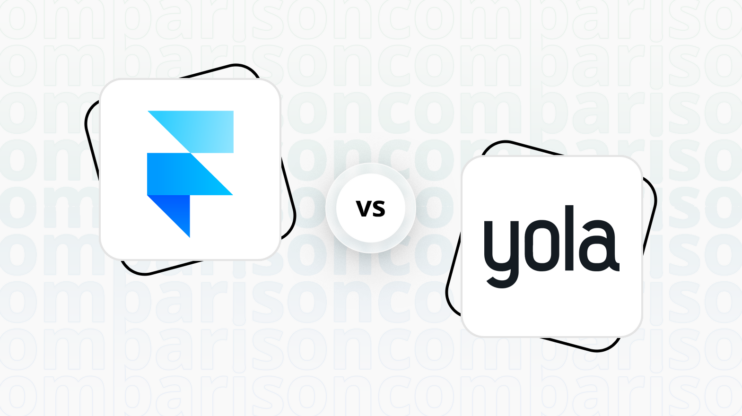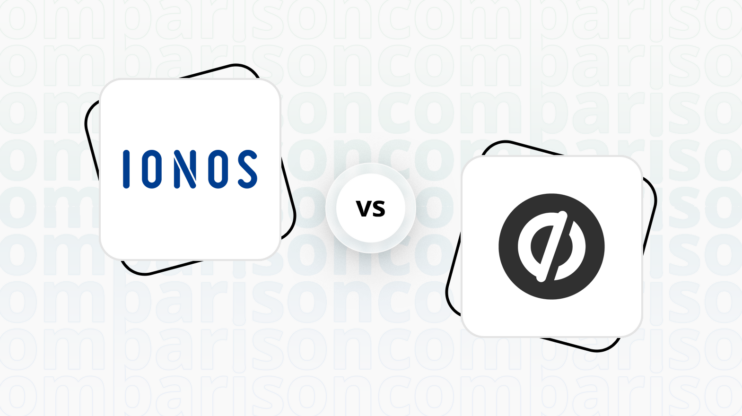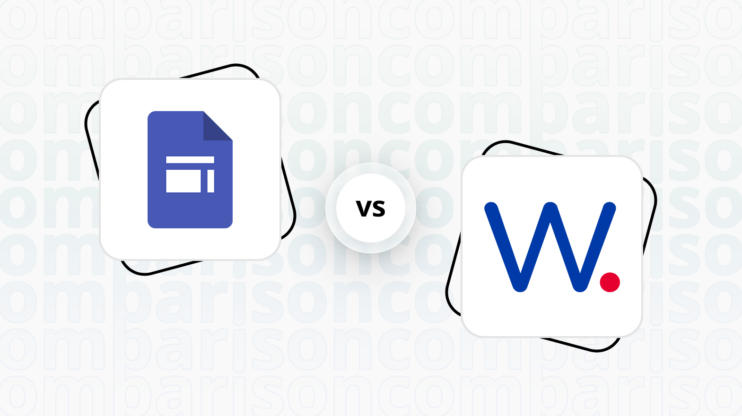Voog vs Adobe Commerce(ex Magento): Final verdict
Voog and Adobe Commerce(ex Magento) both offer unique strengths, catering to different user needs and business scales.
-
Voog (Overall Grade: 6.7/10)
is ideal for individuals and small businesses looking for a simple, user-friendly website builder with strong multilingual support. It excels in ease of use and design functionalities, making it a great choice for those who prioritize simplicity and design over advanced ecommerce features. Voog’s intuitive drag-and-drop interface and customizable templates make it accessible for beginners and experienced web developers alike. -
Adobe Commerce(ex Magento) (Overall Grade: 6.9/10)
is a robust platform designed for larger businesses and those with advanced ecommerce needs. It offers extensive customization options, scalability, and a comprehensive set of ecommerce features, making it suitable for both B2B and B2C businesses. Adobe Commerce(ex Magento) stands out for its AI-driven personalization, integration with Adobe Experience Cloud, and strong security measures, providing a powerful solution for businesses aiming to grow and manage complex online stores.

|

|
|
|---|---|---|
|
Design functionalities & templates |
7.4 |
6.7 |
|
Ease of use |
8.1 |
5.4 |
|
Ecommerce |
6.9 |
9.4 |
|
Website Editors |
7.6 |
7.8 |
|
Product testing options |
8.6 |
3.9 |
|
Price |
7.5 |
5.8 |
|
Hosting quality |
7.7 |
8.1 |
|
Website speed optimization |
6.2 |
6.6 |
|
Plugins and integrations |
6.7 |
9.1 |
|
Marketing features |
6.9 |
8.1 |
|
Customer support |
6.1 |
8.3 |
|
Security |
7.7 |
8.4 |
|
AI capabilities |
0 |
7.7 |
|
User Management |
7.3 |
8.0 |
Which one is the best for ecommerce: Voog or Adobe Commerce(ex Magento)?
 6.9
6.9
 9.4
9.4
Verdict
: Voog is suitable for small businesses and individuals looking for simplicity, while Adobe Commerce(ex Magento) excels in providing advanced ecommerce features for larger businesses.
-
Voog
: Voog offers essential ecommerce features such as order management, global shipping, and product variants. It is ideal for small businesses and individuals who need a straightforward platform to launch their online stores. However, its customization options and scalability are limited compared to Adobe Commerce(ex Magento). Best For Ecommerce score: 6.9. -
Adobe Commerce(ex Magento)
: Adobe Commerce(ex Magento) stands out with its comprehensive set of ecommerce features, including advanced product and inventory management, customer management, and multi-channel commerce. It is suitable for businesses with complex ecommerce needs and those looking to scale. Best For Ecommerce score: 9.4.
Which one is the best for informational and business websites?
 7.5
7.5
 7.4
7.4
Verdict
: Voog slightly edges out Adobe Commerce(ex Magento) for informational and business websites due to its user-friendly interface and strong multilingual support, making it ideal for international audiences.
-
Voog
: Voog is designed with simplicity and design in mind, offering an intuitive drag-and-drop interface that makes it easy for both beginners and experienced developers to create professional-looking websites. Its standout feature is its multilingual support, which is perfect for businesses targeting a global audience. Voog’s customizable templates and SEO tools ensure that websites are not only visually appealing but also optimized for search engines. With a score of 7.5, Voog is a solid choice for informational and business websites. -
Adobe Commerce(ex Magento)
: Adobe Commerce, formerly known as Magento, is a robust platform that excels in ecommerce but also offers capabilities for informational websites. It provides extensive customization options and integrates well with other Adobe products, making it suitable for businesses that need a scalable and flexible solution. However, its steeper learning curve and focus on ecommerce functionalities make it less ideal for purely informational sites. With a score of 7.4, Adobe Commerce is a powerful but complex option for business websites.
Voog vs Adobe Commerce(ex Magento): Detailed comparison
Design functionalities & templates
Design FunctionalitiesRepresents how well each platform allows for creative design and customization of websites.Score Components:
- Template Variety (30%): Range and quality of design templates.
- Customization (30%): Flexibility and options for design alterations.
- User Interface (20%): Ease and intuitiveness of the design process.
- Responsiveness (10%): Adaptability to different devices and screen sizes.
- Innovation (10%): Unique design features and tools.
 7.4
7.4
 6.7
6.7
🏆
Winner: Voog.
Voog offers a more user-friendly design experience with a diverse range of templates and an intuitive drag-and-drop interface.
Voog offers a diverse range of design templates across various categories tailored for different website types such as business services, online stores, blogs, and more, catering to a wide audience. The platform highlights specific templates for creating visually appealing and functional webstores and blogs, emphasizing user-friendly design and mobile responsiveness.
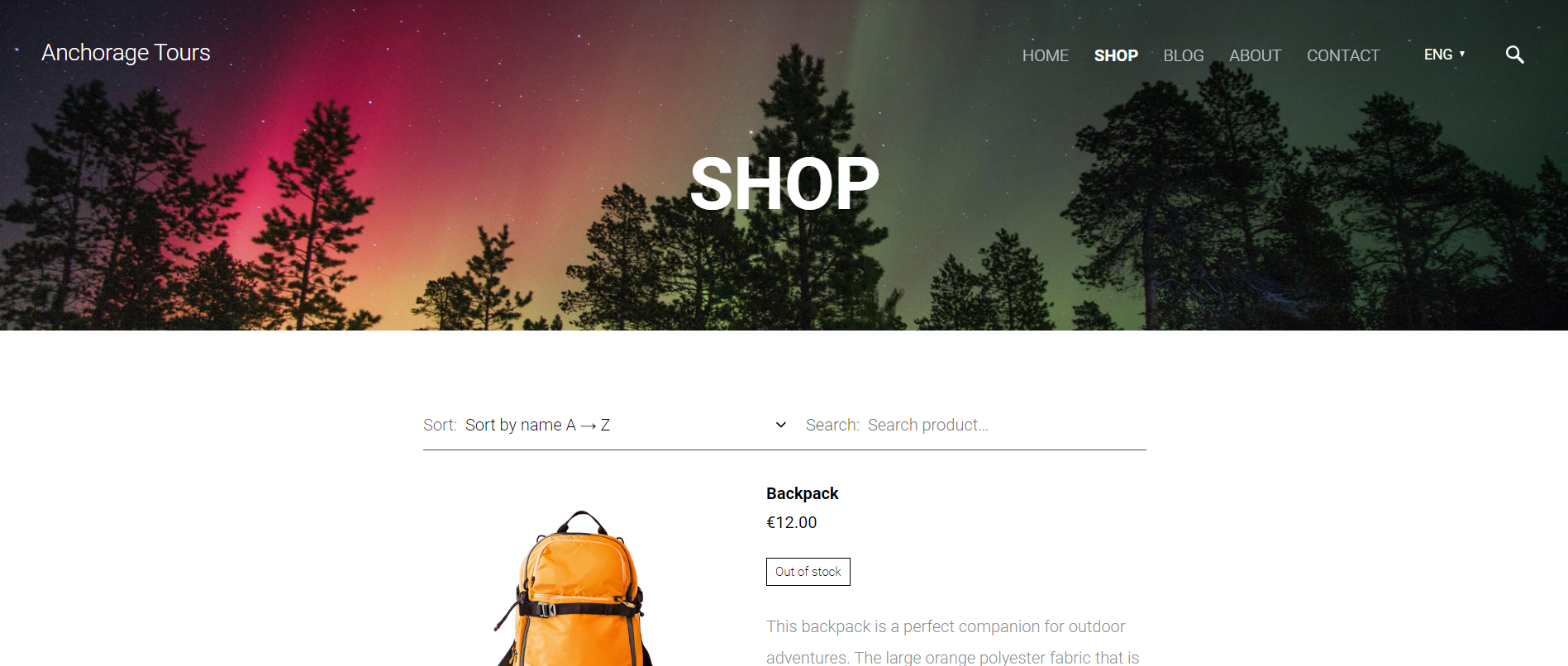
On the other hand, Adobe Commerce, formerly Magento, prioritizes flexibility over pre-built templates. While it offers a limited selection of base themes, users can access third-party themes for customization. Theme options are highly adaptable, allowing changes to layouts, colors, fonts, and the creation of custom page layouts. The platform provides a powerful theme framework for comprehensive control, including frontend editing for basic adjustments. Experienced developers can employ custom code (HTML, CSS, Javascript) for unique designs and advanced functionalities.
Adobe Commerce(ex Magento) Themes
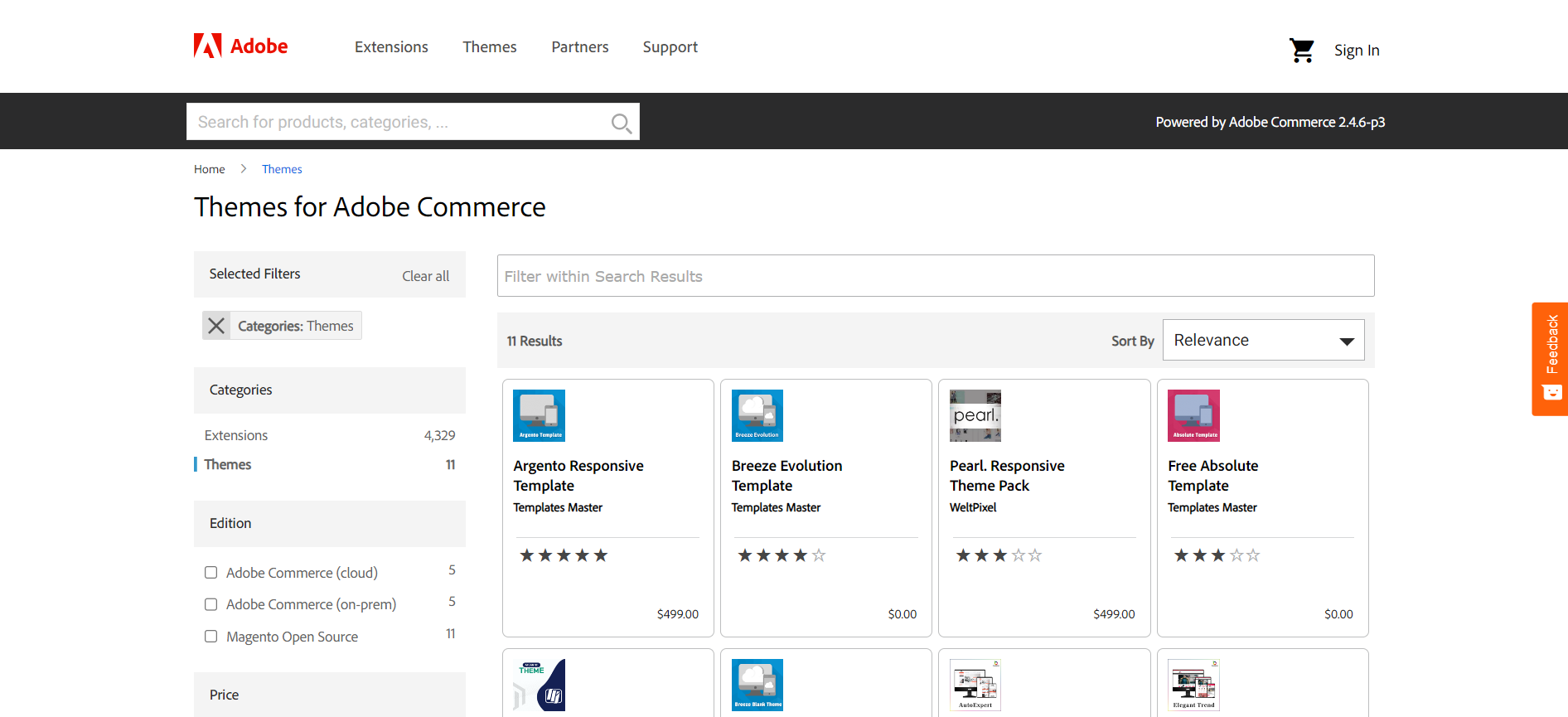
Get a head start on website creation with AI
Create a custom website tailored to your business needs 10X faster with 10Web AI Website Builder!
Ease of use
Ease of useReflects the platform’s overall user-friendliness.Score
Components:
- Learning curve (40%): Quickness and ease of getting started.
- Interface design (30%): Simplicity and intuitiveness of layout.
- User guidance (20%): Quality of tutorials and support.
- Flexibility (10%): Adaptability to various user skills.
 8.1
8.1
 5.4
5.4
🏆 Winner: Voog
. Scoring 8.1, Voog stands out for its simplicity and user-friendly interface, making it an excellent choice for individuals and small businesses. Adobe Commerce(ex Magento), with a score of 5.4, offers a robust platform but with a steeper learning curve, especially for those without technical expertise. If ease of use is a priority, Voog is the clear winner in this category.
Learning Resources
🏆 Winner: Tie
. Both Voog and Adobe Commerce(ex Magento) offer extensive learning resources, ensuring an effective and enjoyable website-building experience for their users. However, Voog lacks a large community of users, while Adobe Commerce(ex Magento) boasts a robust user community, providing additional support and learning opportunities.
For ecommerce
EcommerceMeasures the platform’s effectiveness in supporting online business activities.Score Components:
- Ecommerce themes and templates (20%): Variety and design of templates.
- Product management (25%): Ease of managing and organizing products.
- Payment options (25%): Variety and convenience of payment methods.
- Ecommerce features (20%): Features for managing an ecommerce store.
- Integration (10%): Compatibility with external e-commerce tools and services.
 6.9
6.9
 9.4
9.4
When it comes to ecommerce, Adobe Commerce(ex Magento) stands out with its comprehensive set of features, including product and inventory management, efficient order processing, customer account management, targeted marketing capabilities, diverse payment processing options, robust security measures, and scalability to accommodate business growth. On the other hand, Voog offers essential ecommerce features, making it suitable for individuals and small businesses looking to launch online stores with ease. However, businesses with advanced or specific ecommerce requirements might find Voog’s customization options somewhat limited compared to Adobe Commerce(ex Magento).

|

|
|
|---|---|---|
|
Ecommerce themes and templates |
6.5 |
7.5 |
|
Product page customization |
6.8 |
9.0 |
|
Payment processing and commissions |
7.0 |
7.8 |
|
POS capabilities |
5.0 |
7.0 |
|
Payment gateways |
7.5 |
8.5 |
|
Product numbers |
5.5 |
7.5 |
|
Additional ecommerce features |
6.0 |
8.0 |
Voog ecommerce features:
- Order management
- Global shipping
- Product variants
- Payment gateways integration
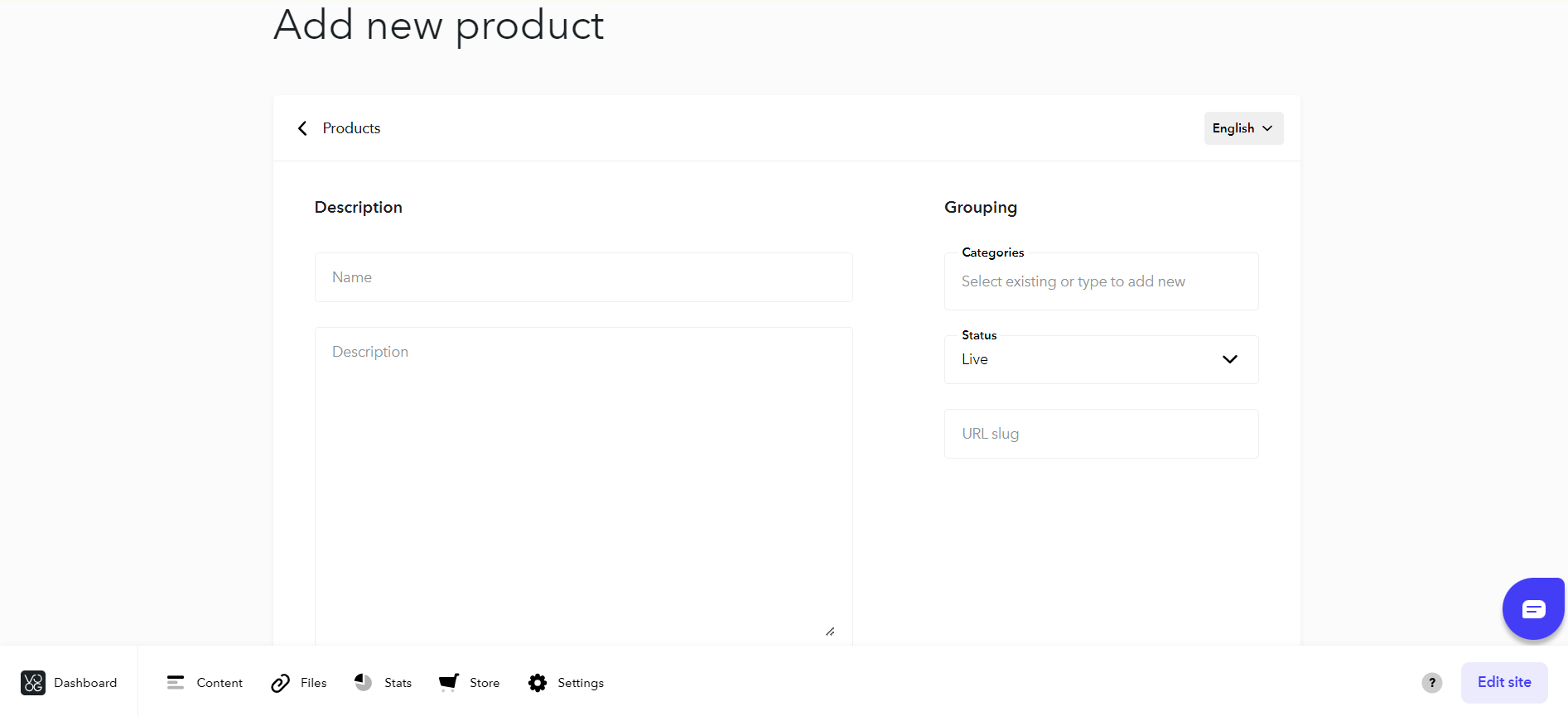
Adobe Commerce(ex Magento) ecommerce features:
- Product and Inventory Management
- Order Management
- Customer Management
- Marketing and Promotions
- Payment Processing
- Multi-Channel Commerce
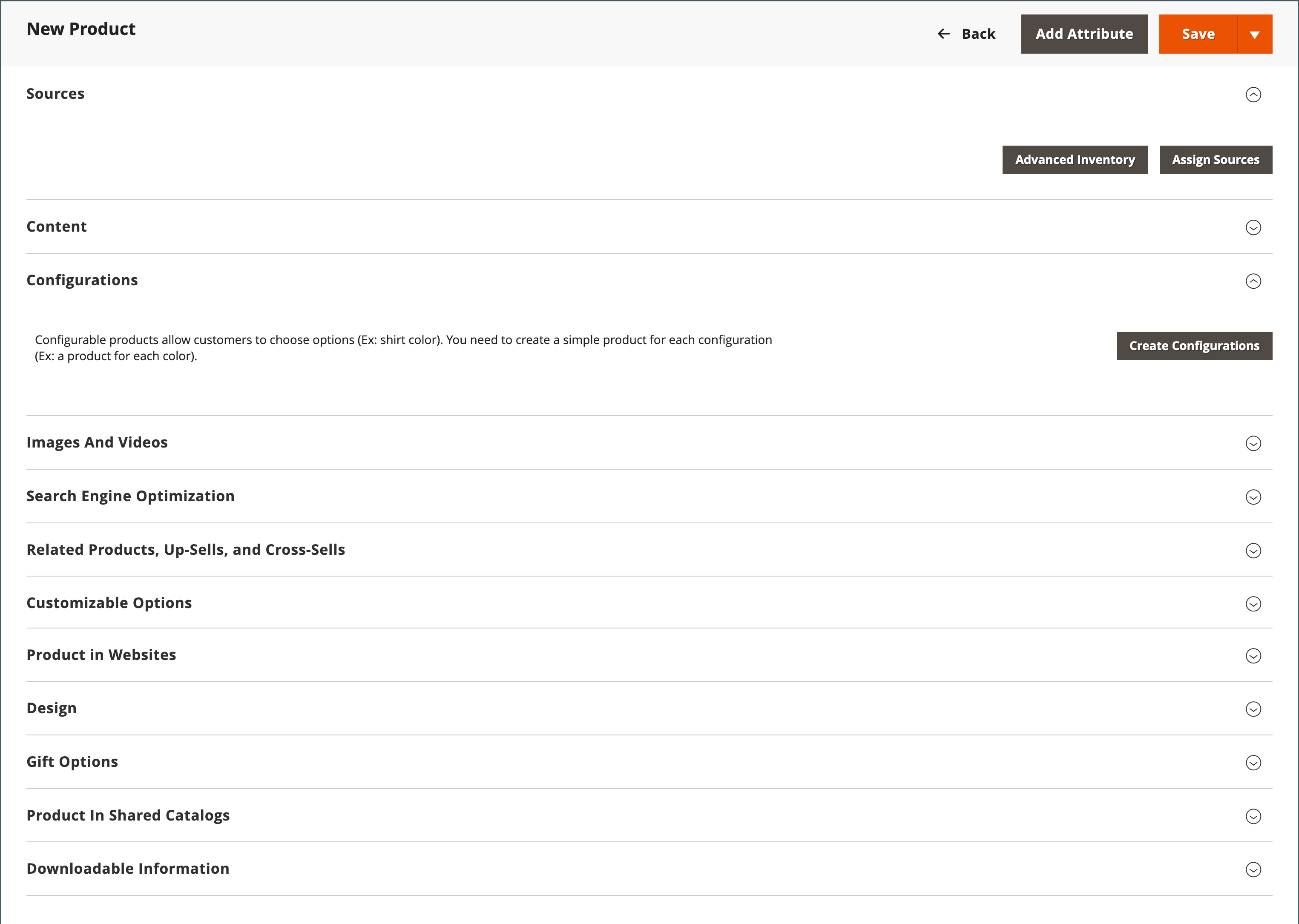
Ecommerce themes & templates
For e-commerce, Voog highlights around 18 templates optimized for building online stores. These templates are praised for their attractive landing pages, spacious backgrounds for product images, and structured product and product list layouts, which aim to create a user-friendly browsing experience similar to visiting a physical store. On the other hand, Adobe Commerce, powered by Magento, offers a comprehensive ecosystem for ecommerce themes and templates, enabling businesses to customize their online stores to meet specific branding and functionality requirements.
Product page customization
Voog website builder provides functionality for customization of product pages within an online store. It enables the modification of various product aspects such as names, descriptions, categories, visibility status, and URL slugs. The system also allows for the inclusion of multiple images per product, and offers settings for net and sale prices, VAT rates, and inventory tracking. Adobe Commerce, formerly known as Magento, offers extensive customization options for product pages, enabling businesses to enhance the user experience and tailor product displays to their specific needs.
Payment processing
Voog supports a variety of payment gateways to accommodate diverse online transaction needs. Supported gateways include Swedbank Payment Gateway, Bank links through MakeCommerce (Nordics and Baltics), Montonio, Stripe, PayPal, EveryPay (for card payments and payment initiation), and Luminor Payment Gateway. Adobe Commerce offers integrated payment solutions and commission management for seamless online transactions, alongside POS integration for omnichannel retail experiences. It supports a wide array of payment gateways, ensuring flexible and secure payment options for customers.
Website Editors
Website EditorsEvaluates the platforms’ website building and editing capabilities.Score Components:
- Customization tools (40%): Range and power of editing features.
- Editor usability (30%): User experience within the editor.
- Design flexibility (20%): Freedom in layout and design changes.
- Update and maintenance ease (10%): Simplicity of updating and maintaining the site.
 7.6
7.6
 7.8
7.8
🏆
Winner: Adobe Commerce(ex Magento)
. Adobe Commerce(ex Magento), with a score of 7.8, offers a robust ecommerce platform designed for flexibility and scalability, enabling businesses to create customized online stores with extensive features for product management, customer engagement, and analytics. It supports both B2B and B2C models and offers a range of tools for marketing, SEO, and inventory management, along with a vast ecosystem of extensions. Suitable for businesses of all sizes, Adobe Commerce provides options for cloud-hosting or self-hosting, catering to a wide array of ecommerce needs.
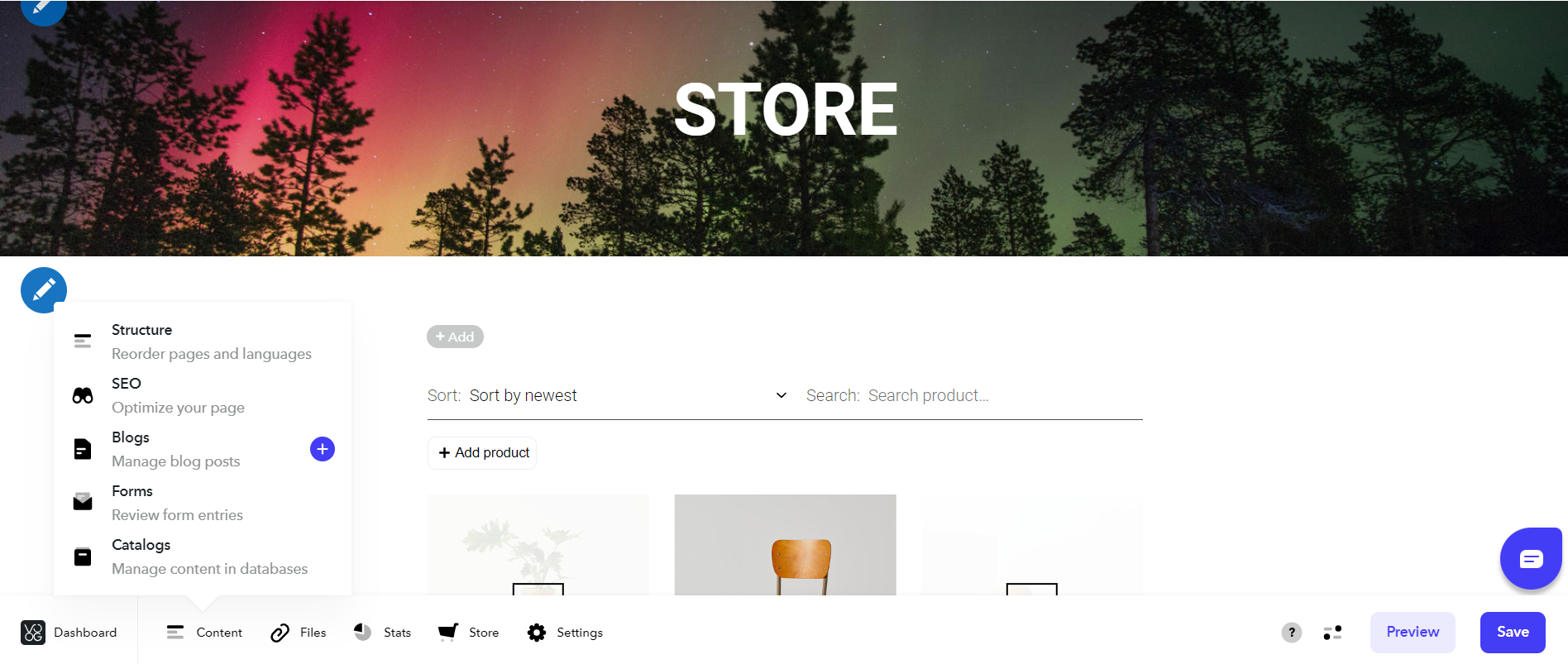
Voog’s website builder editor, scoring 7.6, is designed to be both powerful and user-friendly, catering to a wide range of needs from basic blogs to complex, multilingual websites. It offers a rich array of features including customizable templates, SEO tools, e-commerce functionalities, and developer-friendly tools for advanced customization. With its strong multilingual support, Voog stands out as an ideal choice for creating international websites, ensuring accessibility for a global audience.
Mobile editor/app
 5.5
5.5
 0
0
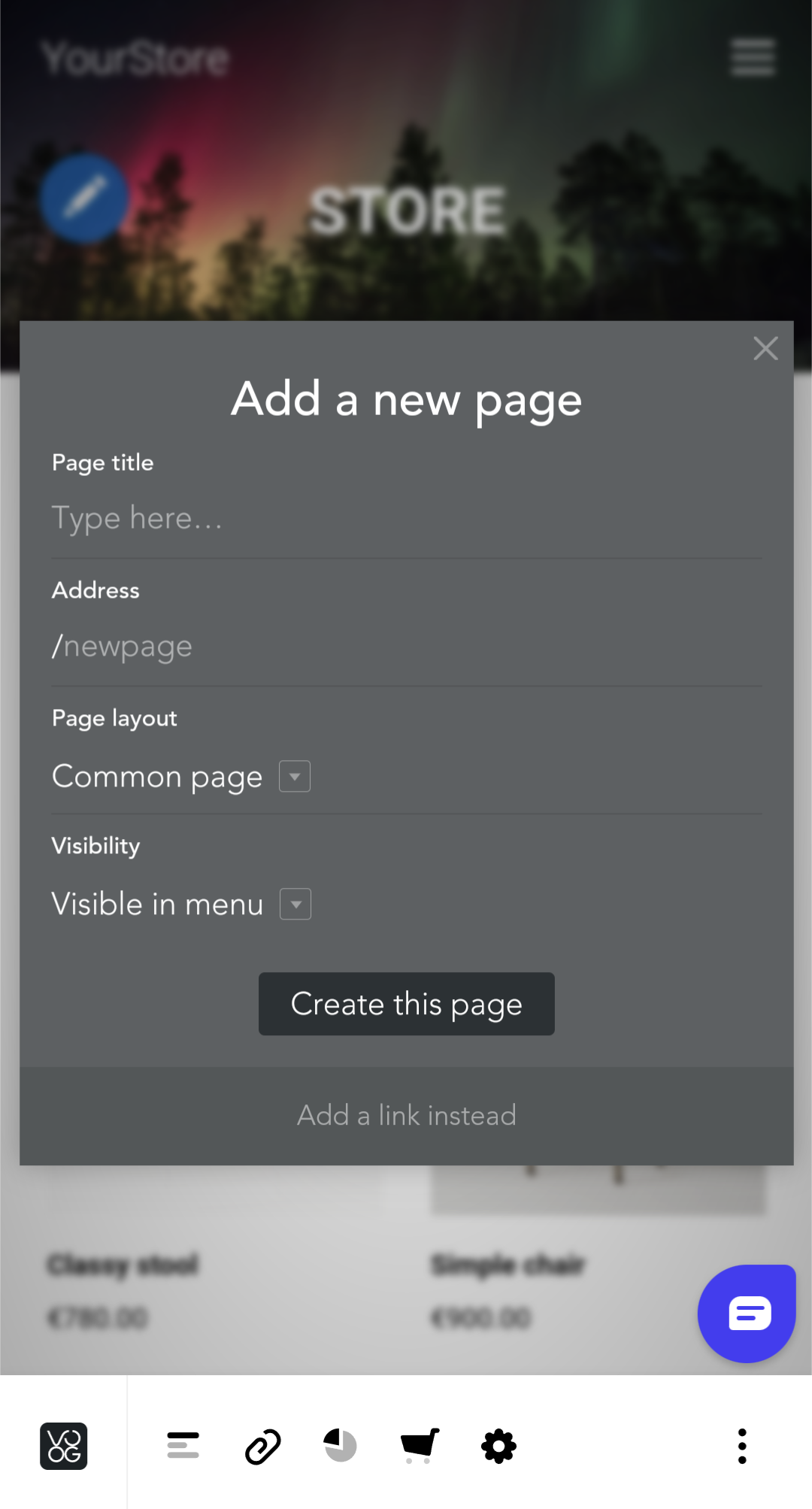
🏆
Winner: Voog
. Neither Voog nor Adobe Commerce (ex Magento) offer a dedicated mobile app for website editing. However, Voog allows users to manage and edit their websites using the mobile browser version of the editor, providing some level of convenience for users who need to make changes on the go. On the other hand, Adobe Commerce does not offer any mobile editing capabilities at this time, which may limit its usability for users who prefer to work from their mobile devices.
Product testing options
Product Testing OptionsAssesses the options for trying out platform features before commitment.Score Components:
- Trial quality (40%): Extent and usefulness of the trial or free version.
- Feature accessibility (30%): How many features are available to test.
- Trial duration (20%): Length of the trial period.
- Ease of transition (10%): Smoothness of moving from trial to paid plans.
 8.6
8.6
 3.9
3.9
Overall Result
:
Voog Wins
. Voog scores 8.6 in product testing options, significantly higher than Adobe Commerce(ex Magento) which scores 3.9. Voog offers a 30-day free trial during which users can test all premium features. Adobe Commerce(ex Magento), on the other hand, does not offer a free trial or a money-back guarantee, but users can request a demo version to test premium features.

|

|
|
|---|---|---|
|
Free Plan |
No | No |
|
Trial Duration |
30 days | No |
|
Testing Premium Features |
Yes, during free trial |
Yes, by requesting a demo version |
|
Money Back Guarantee |
No | No |
Price
PriceLooks at the cost-effectiveness and value for money of each platform.Score Components:
- Plan value (40%): What each pricing tier offers.
- Transparency and clarity (30%): Clearness of pricing structures.
- Flexibility of plans (20%): Range of options to suit different budgets.
- Hidden costs (10%): Additional expenses not included in the plan.
 7.5
7.5
 5.8
5.8
Voog offers more transparency with its pricing, with three distinct plans and a discount on annual subscriptions. Adobe Commerce(ex Magento), on the other hand, requires direct contact for a personalized quote and does not offer discounts on annual subscriptions.

|

|
|
|---|---|---|
|
$10-$20 |
Standard (€14/month): Good for simple websites, with unlimited bandwidth, up to 30 website pages, online store with up to 3 products, 3% transaction fees, 5GB file storage, and up to 3 contributors. Value for price: 6.5 |
No offering at this amount. |
|
$20-$30 |
Plus (€22/month): Recommended for most users for more advanced websites, with free custom domain if annual subscription is purchased, unlimited bandwidth, unlimited website pages, online store with unlimited products, 3% transaction fees, 20GB file storage, and unlimited contributors. Value for price: 8.0 |
No offering at this amount. |
|
$40-$50 |
Premium (€50/month): Designed for more advanced needs with free custom domain if annual subscription is purchased, unlimited bandwidth, unlimited website pages, online store with unlimited products, no transaction fees, unlimited file storage, and contributors. Value for price: 9.0 |
No offering at this amount. |
|
$2000+ |
No offering at this amount. |
Adobe Commerce Pro and Managed Services ($2000/month): Adobe Commerce Pro and Managed Services are designed to deliver scalable, secure, and extensive eCommerce solutions tailored to a wide range of business demands. It offers a comprehensive set of ecommerce tools, including product and inventory management, efficient order processing, customer account management, targeted marketing capabilities, diverse payment processing options, robust security measures, and scalability to accommodate business growth. It also offers both self-hosted and cloud-hosted options, providing flexibility and optimized performance. While it does not have an AI website builder, it offers a powerful theme framework for comprehensive control, including frontend editing for basic adjustments. Experienced developers can employ custom code for unique designs and advanced functionalities. |
location. As a result in rare cases the prices displayed here can differ from the ones you see on their
websites.
Hosting quality
Hosting
qualityExamines the reliability and performance of the hosting solutions.Score Components:
- Uptime (40%): Consistency and reliability of website availability.
- Speed (30%): Loading times and performance.
- Bandwidth and storage (20%): Sufficiency of resources provided.
- Data centers (10%): Quality and distribution of hosting infrastructure.
 7.7
7.7
 8.1
8.1
🏆
Winner: Adobe Commerce(ex Magento)
Adobe Commerce(ex Magento) offers robust and scalable eCommerce solutions with both self-hosted and cloud-hosted options, providing flexibility and optimized performance. Voog also offers hosting with unlimited bandwidth and automated daily backups, but it does not disclose the type of hosting or the locations of its data centers. Adobe Commerce(ex Magento) stands out for its comprehensive hosting solutions, earning it a higher rating.

|

|
|
|---|---|---|
|
Do they offer hosting? |
Yes |
Yes |
|
Data Centers: |
Not disclosed |
Leveraging AWS |
|
Type of hosting: |
Not disclosed |
Self Hosting, Managed Hosting |
|
Uptime: |
99.9% |
Not disclosed |
|
Uptime Guarantee: |
Yes, 99.9% |
Provided |
Website Speed Optimization
Website Speed OptimizationEvaluates optimization of website loading timesScore Components:
- PageSpeed Score (30%): Google’s score indicating performance optimization.
- Loading Time (30%): The average time until a website is fully interactive.
- Mobile Optimization (15%): Optimization effectiveness for mobile devices.
- Resource Optimization (15%): Optimizing images, scripts, and other heavy resources.
- CDN Usage (10%): Use of CDN to enhance speed across geolocations.
 6.2
6.2
 6.6
6.6
🏆 Winner: Adobe Commerce(ex Magento)
Both Voog and Adobe Commerce(ex Magento) prioritize website performance and page speed, but Adobe Commerce(ex Magento) has a slight edge due to its emphasis on Core Web Vital improvements.

|

|
|
|---|---|---|
|
Focus |
Mobile Responsive design, Caching, Image Optimization, Code minification |
CDN, Database optimization, Caching, Indexing |
|
Performance Tools |
Google Lighthouse, PageSpeed Insights |
Google PageSpeed Insights Integration |
|
Key Strategies |
Mobile Responsive design, Caching, Image Optimization, Code minification |
CDN, Database optimization, Caching, Indexing |
|
Load Times |
Varies depending on optimization and website complexity |
Varies widely, dependent on optimization |
|
Page Speed Scores Range |
Scores vary; influenced by optimization and website complexity |
Scores vary; influenced by plugins, images |
|
Core Web Vitals Improvement |
No disclosed information |
Emphasis on LCP, FID, CLS improvements |
Adobe Commerce(ex Magento) focuses on enhancing website performance and page speed by integrating tools like CDN, Database optimization, Caching, and Indexing. It also emphasizes on improving Core Web Vitals (CWV) scores, focusing on Largest Contentful Paint (LCP), First Input Delay (FID), and Cumulative Layout Shift (CLS) improvements. The real-world performance analysis of Adobe Commerce(ex Magento) websites showed a wide range of page speed scores, influenced by plugins and images, with load times varying widely, dependent on optimization.
Voog, on the other hand, places a strong emphasis on website performance and page speed. Voog’s approach to enhancing site speed includes Mobile Responsive design, Caching, Image Optimization, and Code minification. However, Voog does not disclose any information on their Core Web Vitals improvements. Analysis of Voog sites showed a range of speed scores and load times, varying depending on optimization and website complexity. Continuous maintenance and optimization are essential for keeping Voog websites fast.
Get a head start on website creation with AI
Create a custom website tailored to your business needs 10X faster with 10Web AI Website Builder!
Plugins and integrations
Plugins and integrationsMeasures the range and effectiveness of additional plugins and integrations.Score Components:
- Variety of options (40%): Range of available add-ons.
- Integration smoothness (30%): Ease of integrating plugins into the site.
- Quality of plugins (20%): Functionality and reliability of the options.
- Custom integration capabilities (10%): Support for custom or third-party integrations.
 6.7
6.7
 9.1
9.1
🏆 Winner: Adobe Commerce(ex Magento).
Adobe Commerce(ex Magento) scores a high 9.1, offering a vast array of extensions and plugins, estimated to be in the tens of thousands, covering aspects such as marketing, payment processing, shipping, content management, security, and optimization. Voog, with a score of 6.7, offers a wide range of integrations to enhance your web presence, but falls short in comparison to the extensive offerings of Adobe Commerce(ex Magento).
It’s worth noting that while Adobe Commerce(ex Magento) offers more extensive options, the pricing for these plugins can range significantly, potentially leading to higher costs. Voog, on the other hand, offers a more straightforward pricing structure for its integrations.
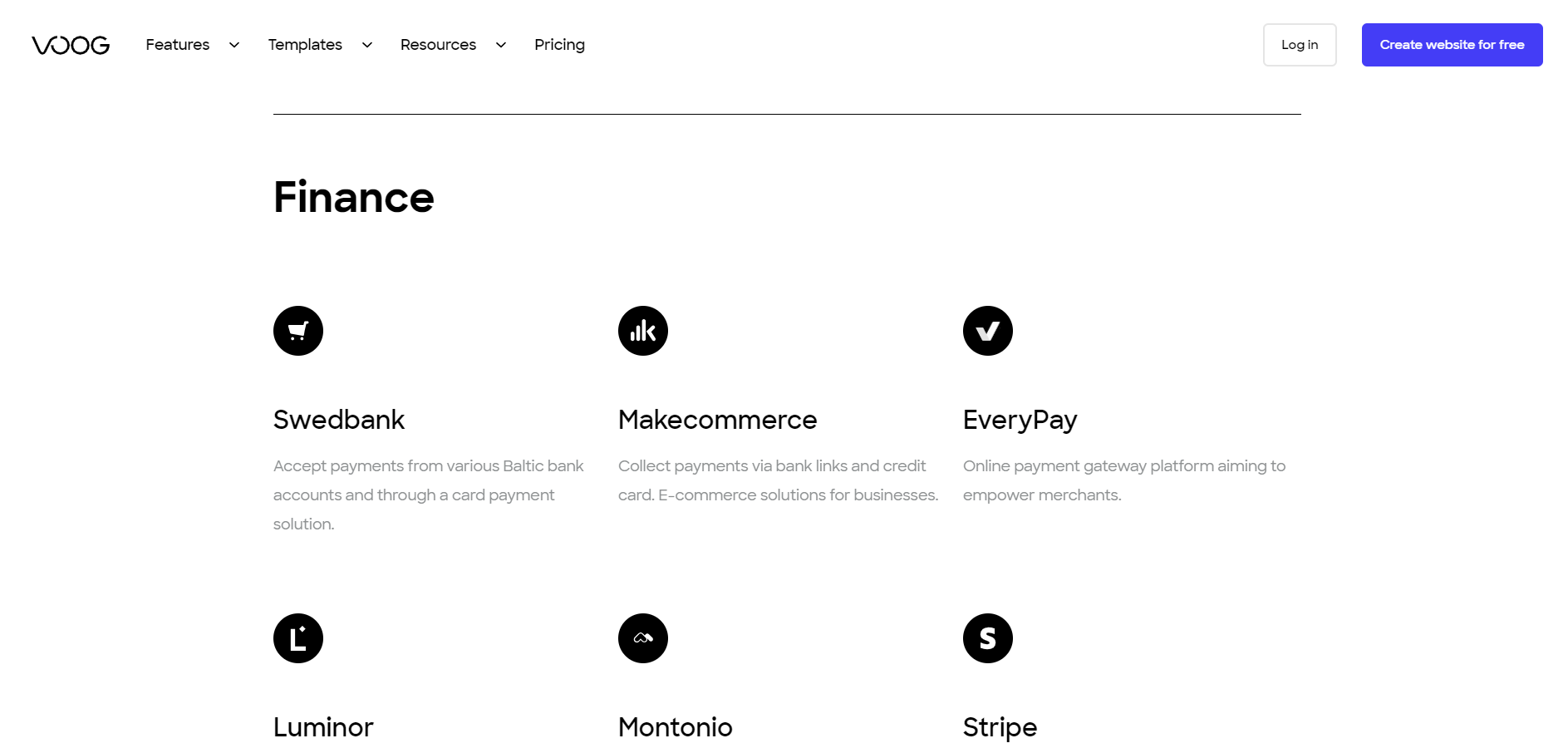
Adobe Commerce(ex Magento) Applications
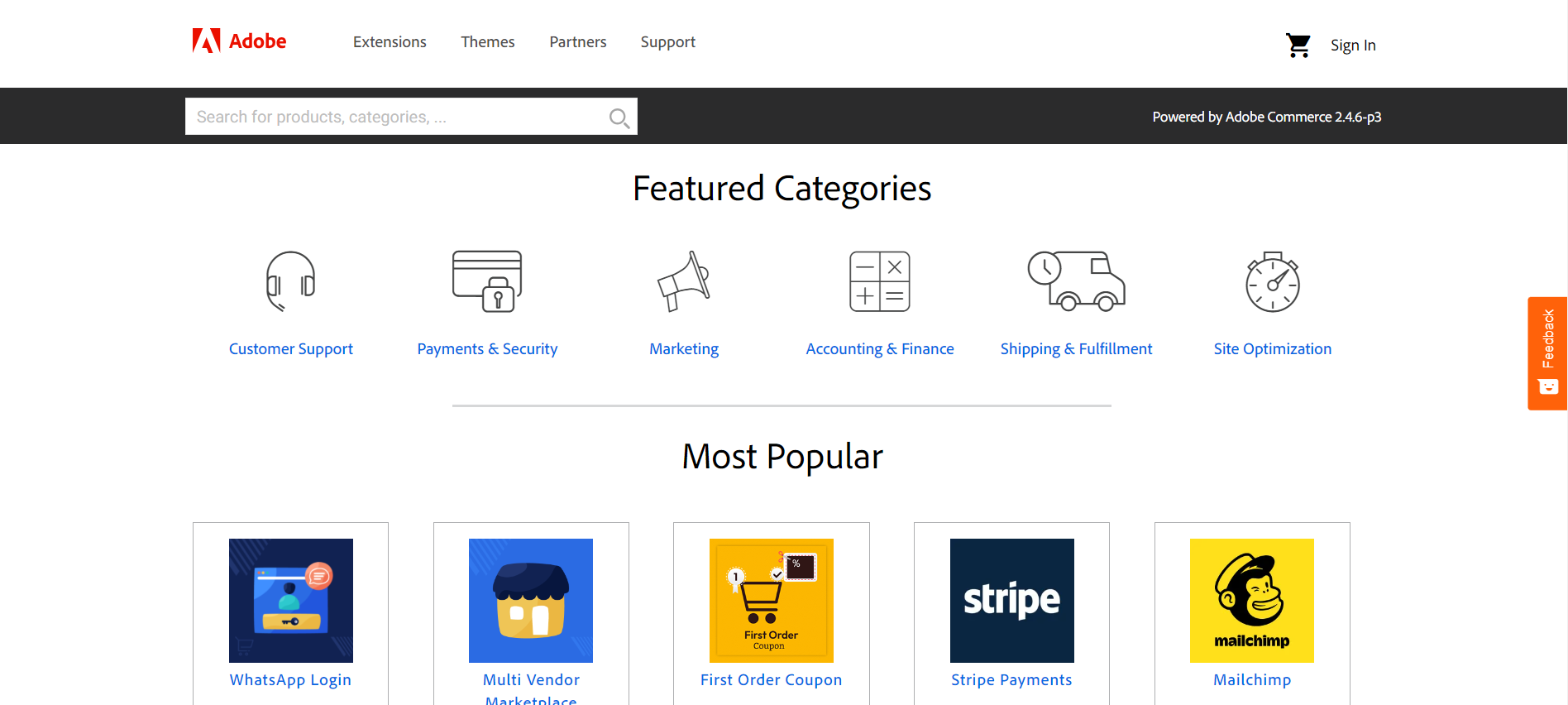
Marketing Features
Design FunctionalitiesRepresents how well each platform allows for creative design and customization of websites.Score Components:
- Template Variety (30%): Range and quality of design templates.
- Customization (30%): Flexibility and options for design alterations.
- User Interface (20%): Ease and intuitiveness of the design process.
- Responsiveness (10%): Adaptability to different devices and screen sizes.
- Innovation (10%): Unique design features and tools.
 6.9
6.9
 8.1
8.1
🏆
Overall Winner: Adobe Commerce(ex Magento)
. Adobe Commerce(ex Magento) offers a more comprehensive set of marketing tools, especially in analytics, reporting, and ad campaign management. Voog, on the other hand, stands out for its simplicity and ease of use, making it a good choice for beginners or those with less complex marketing needs.

|

|
|
|---|---|---|
|
SEO Tools |
|
|
|
Email Marketing |
✓ (through third-party integrations) |
|
|
Blogging |
|
✓ (through third-party integrations) |
|
Social Media Integration |
|
|
|
Analytics and Reporting |
Basic built-in analytics tools, and integration of Google Analytics |
Adobe Commerce integrates with Google Analytics and other analytics tools, providing detailed insights into your ecommerce activities. |
|
Ads and Promotions |
✓ (through third-party integrations) |
Advanced marketing tools for creating and managing promotions, coupons, and personalized content. |
Customer Support
Customer supportEvaluates the quality and availability of support options.Score Components:
- Response time (40%): Speed of support responses.
- Support quality (30%): Effectiveness and helpfulness of the support.
- Availability (20%): Range of support channels (phone, chat, email).
- Resource richness (10%): Quality of self-help and educational materials.
 6.1
6.1
 8.3
8.3
🏆 Winner: Adobe Commerce(ex Magento)
. In the comparison of Voog vs Adobe Commerce(ex Magento), Adobe Commerce(ex Magento) takes the lead with a higher customer support score of 8.3. Adobe Commerce(ex Magento) offers 24/7 support through phone, email, and live chat, ensuring that users can get assistance at any time. Additionally, it provides a comprehensive knowledge base, community forums, and a variety of support resources such as documentation, user guides, and video tutorials. For enterprise-level businesses, Adobe Commerce(ex Magento) offers dedicated account management and access to a global network of experts, enhancing the overall support experience.
Voog, on the other hand, has a customer support score of 6.1. Voog’s support is available 7 days a week through email, and it offers a range of support guides to assist users. However, it lacks the 24/7 availability and the extensive resources provided by Adobe Commerce(ex Magento). Voog does not offer dedicated enterprise support, which may be a limitation for larger businesses seeking more robust support options.
Security
SecurityLooks at the platforms’ security measures and data protection.Score Components:
- Data protection (40%): Safeguards for user and customer data.
- SSL and encryption (30%): Implementation of secure connections.
- Compliance (20%): Adherence to industry security standards.
- Regular updates (10%): Frequency of security updates and patches.
 7.7
7.7
 8.4
8.4
🏆
Winner: Adobe Commerce(ex Magento)
. Adobe Commerce(ex Magento) has a higher security score and offers advanced encryption and access control measures for private data storage and protection. It also provides regular security updates and patches to address vulnerabilities, secure payment processing, and tools for monitoring and detecting suspicious activity on the website.
Voog, on the other hand, also provides robust security features, including SSL encryption through Let’s Encrypt for free, automatically renewed certificates, and the option to use certificates from alternative providers for premium plan users. However, it falls slightly short in comparison to Adobe Commerce(ex Magento) in terms of overall security score and features.
AI Capabilities
AI capabilitiesMeasures the effectiveness of AI-driven features and tools.Score Components:
- Automation efficiency (40%): Impact of AI on streamlining processes.
- Personalization (30%): AI-driven customization for users or customers.
- AI-Assisted design (20%): Role of AI in website design and functionality.
- Data analysis (10%): Use of AI in interpreting user data and analytics.
 0
0
 7.7
7.7

|

|
|
|---|---|---|
|
Personalized Design |
|
|
|
SEO Optimization |
|
AI-driven SEO optimization for content |
|
Customer Behavior Analysis |
|
AI analyzes shopper behavior and trends |
|
Sales Predictions |
|
AI forecasts inventory needs and optimizes pricing strategies |
|
Inventory Management |
|
AI-driven inventory management |
|
Content Generation |
|
AI automates the generation of unique product descriptions |
🏆 Winner: Adobe Commerce(ex Magento)
. Adobe Commerce, with a score of 7.7, integrates AI across various aspects of eCommerce, enhancing customer service, security, and marketing. AI-powered chatbots offer round-the-clock customer service, boosting satisfaction while easing the burden on human teams. In security, AI aids in identifying and mitigating fraudulent transactions, thereby protecting revenue and building customer trust. Moreover, AI-driven marketing automation enables tailored email campaigns and social media strategies, optimizing engagement based on detailed customer data. These AI capabilities streamline operations, foster customer loyalty, and drive efficient marketing strategies.
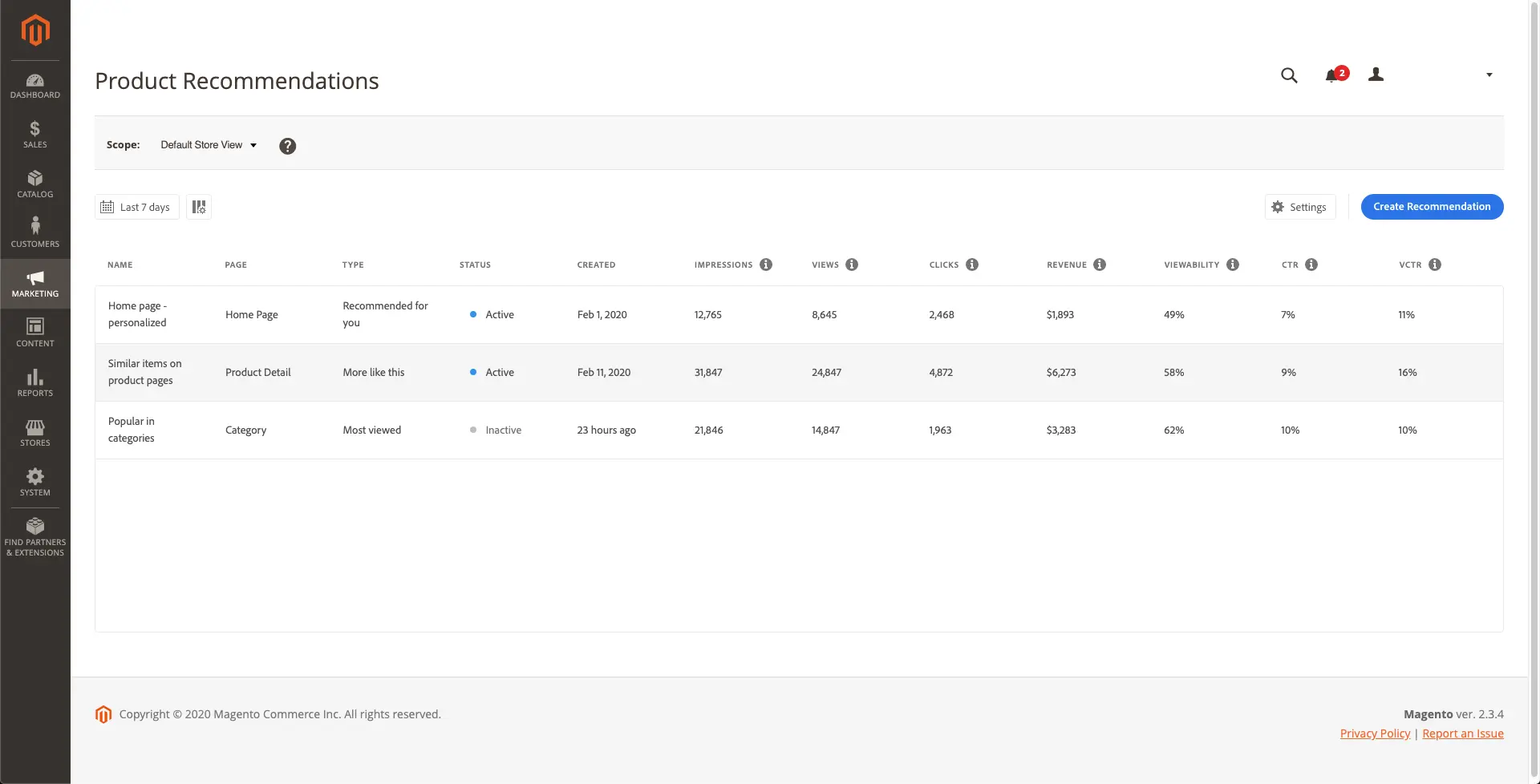
Voog, unfortunately, does not have any AI capabilities. This means it lacks the advanced features that AI can provide, such as personalized recommendations, dynamic search, automated marketing, and data analysis. This could limit the functionality and efficiency of websites built with Voog, particularly for eCommerce businesses.
User Management
User ManagementAssesses the platforms’ capabilities in managing user roles, permissions, and accessibility.Score Components:
- Role Customization (40%): Flexibility in creating and defining user roles and
permissions. - Ease of Management (30%): User interface and tools for managing users.
- Access Control (20%): Effectiveness of access control measures for different user
levels. - Scalability (10%): Ability to manage a growing number of users efficiently.
 7.3
7.3
 8.0
8.0
🏆 Winner: Adobe Commerce(ex Magento)
. Both Voog and Adobe Commerce offer different approaches to user management.
- Voog allows up to 3 contributors for the Standard plan, while the Plus and Premium plans offer unlimited contributors.
- Adobe Commerce’s user management depends on user licenses and roles. User licenses, which are bought separately, determine the total number of users allowed. Roles and permissions, managed within the available licenses, control access and modifications.
Voog User Roles and Access Levels:
| Role | Description | Access Highlights |
|---|---|---|
| Admin | Admins, also known as owners, have full control over the website. They can manage all aspects of the site without any restrictions. | Full site management, including key account settings like subscription info. |
| Editor | Editors can manage certain aspects of the site, but they do not have access to key account settings. Their role is more focused on content management. | Limited to certain site settings; cannot manage subscription or account settings. |
Adobe Commerce(ex Magento) User Roles and Access Levels:
| Role | Description | Access Highlights |
|---|---|---|
| Administrator | Has full permissions to all aspects of Adobe Commerce, including global settings and data. | Full access to all settings, data, and functionalities within Adobe Commerce. Can manage other users’ roles and permissions. |
| Store Administrator | Responsible for the day-to-day management of the store, including products, orders, and customer service. | Access to manage products, process orders, and handle customer inquiries, but may have restricted access to sensitive global settings or data. |
| Design Team Member | Focuses on the aesthetic and user experience aspects of the store, working on content design and layout. | Access to content design tools and functionalities, but restricted from accessing customer, order information, and other sensitive areas. |
| Default User (B2B) | Has view-only access to company profile and credit information, and full access to activities related to sales and quotes. | Full access to sales and quotes activities; view-only for company profile and credit information. |
| Senior Buyer (B2B) | Engaged in purchasing, with access to all Sales and Quotes resources, and view-only permissions to the Company Profile, User and Teams, Payment Information, and Company Credit. | Comprehensive access to Sales and Quotes, with limited viewing rights for company’s financial and profile data. |
| Assistant Buyer (B2B) | Assists in purchasing activities, with permissions to place orders using Checkout with Quote, and to view orders, quotes, and company profile information. | Permission to execute orders and access relevant purchasing data; view-only access to company profile information. |
Additional Features

|

|
|
|---|---|---|
|
SSL Certificate |
|
|
|
Custom Domain |
|
|
|
Free Custom Domain Included |
|
|
|
International Domains |
|
|
|
Mobile Responsive |
|
|
|
Page Speed |
|
|
|
Website Builder Mobile App |
|
|
|
Convert a Website To An App |
|
|
|
Website Analytics |
|
|
|
Multilingual Sites |
|
|
|
Multiple Users |
|
|
Voog vs Adobe Commerce(ex Magento): User Feedback
Voog receives positive feedback for its ease of use, allowing users to create their workspace seamlessly. Users commend its problem-solving capabilities and the benefits it provides for client navigation. However, some users express a desire for a more diverse and larger selection of stock photos. Overall, Voog is appreciated for its simplicity and effectiveness in creating professional-looking websites, especially for international businesses due to its multilingual support.
Adobe Commerce (formerly Magento Commerce) is praised for its comprehensive ecommerce solutions, including customer and order management, scalability, and customization options. Users appreciate its flexibility and ease of use, although some mention a learning curve due to its extensive features. Despite occasional drawbacks like slow speed or complexity, Adobe Commerce proves beneficial for businesses seeking robust ecommerce platforms, aiding in sales growth, customer management, and overall efficiency in managing online stores.
The making of this blog
We followed a clear, step-by-step process to write and research this article.
Voog vs Adobe Commerce(ex Magento): FAQ
Which platform is better for beginners, Voog or Adobe Commerce (ex Magento)?
Can I use both Voog and Adobe Commerce for selling products internationally?
How do Voog and Adobe Commerce differ in terms of customization and design flexibility?
What are the major differences in pricing between Voog and Adobe Commerce?
Which platform offers better customer support, Voog or Adobe Commerce?
Can I manage a multilingual website easily with either Voog or Adobe Commerce?
Which platform is more suitable for large-scale ecommerce operations?










